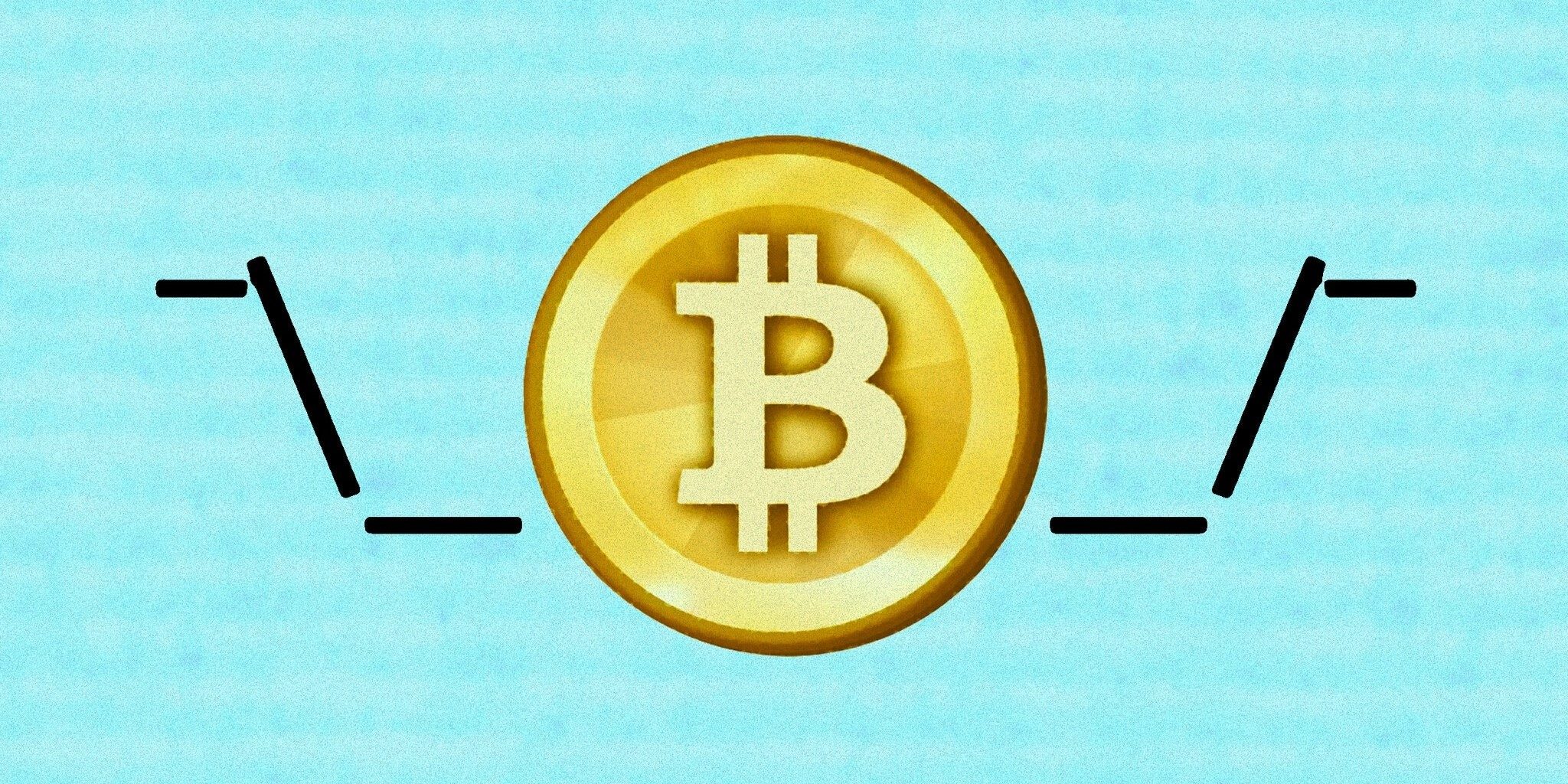Here’s what we’re reading and working on this week at Epsilon Theory.
To receive a weekly full-text email of The Zeitgeist, please sign up here. It’s free, and your email will not be shared with anyone. Ever.
Every item in this email is a discussion thread on the Epsilon Theory Forum – a safe space to speak your mind, a safe space to find like-minded truth-seekers. Watch from a distance if you like, but when you’re ready … join us.

The Eye of Sauron – by which I mean the panopticon gaze of the US Treasury Department – continues to expand its purview over crypto.
Prior Treasury-proposed crypto surveillance was focused on “money transmitters” – banks and exchanges and brokers … any business where money IS their business. These new proposals take those same reporting requirements and extend them to US corporate entities that use money IN their business. As in, ALL corporate entities.
Everything I wrote about in In Praise of Bitcoin is happening. Just faster than I thought it would.
But there’s one thing that gives me hope.
In the past two days, both Paul Krugman and two stalwarts of the Wall Street Journal – Greg Ip and James Mackintosh – penned what I’m sure they thought was their mighty takedown of Bitcoin.
To Krugman it’s just a “silly idea”. Greg Ip writes that Bitcoin will go down in history on the short list of truly awful and society-damaging innovations … you know, like “asbestos, cigarettes and fentanyl”. To Mackintosh, Bitcoin’s usefulness – other than being “a gamblers’ paradise” – is limited to “little more than hackers’ blackmail payments and drug dealing”.
Whenever Paul Krugman and the Wall Street Journal agree on something … I want to be on the other side of that trade.
Why? Because they embody the Grumpy Grandpa establishment view that an insurgent Narrative – which is at the heart of crypto’s appeal – requires as a foil. More than half the battle in constructing a winning narrative protagonist (this is true in politics as much as it is in markets) is choosing your narrative antagonist. And my god, if you gave me my choice of narrative enemies, there’s no one I’d rather have than Paul Krugman and the Wall Street Journal!
This has been a bad week for Bitcoin and Bitcoin! TM alike. There’s no getting around that.
But the consolation for Bitcoin! TM is that these are op-ed hit pieces that are only written after crypto prices fall a lot. Could they fall farther? Sure! But you never see articles like this at a top.
And the consolation for Bitcoin? Well, if opposition to a unified front of Paul Krugman and the Wall Street Journal can’t reenergize the OG Bitcoin narrative of insurgency and resistance to the Nudging State and Nudging Oligarchy, then I don’t know what can!



I like Paul Krugman and John Hussman (mentioned in a different article but also not a cryptocurrency fan). Both however seem to be so conventional thinking that I don’t think that they see that people are losing faith in the dollar because they are losing faith in the decisions of our government. I am not however as enthusiastic about cryptocurrencies as Ben Hunt is. The main benefit is an alternative to a government backed currency and payment system. The remaining features such as speed, cost of transactions, and energy usage are not very appealing and there is not much if anything that the cryptocurrencies can do that the US dollar and its ancillary systems can’t. And the drawbacks are that people and countries that don’t have much good will towards the United States use some features of Bitcoin to their advantage and to the disadvantage of the United States and its citizens.
I read Krugman’s article. He is wrong or misleading about a couple of points. People haven’t paid $2 trillion for cryptos, that is just the marginal cost or market capitalization. If they actually paid $2 trillion into cryptos you would see much more anguish as their current value dropped. Cryptos are NOT a Ponzi scheme. No one is using funds from new investors to pay old investors a return any more than the stock market does when a security changes hands. And whether you call it Libertarian derp or not, a currency only has value if those exchanging it for goods and services have confidence in the currency. A lot of people are losing confidence.
By the way, does ET have a definition for “Nudging State” and “Nudging Oligarchy”?
Re Nudging definitions: the main article I’ve seen to define them, imprecisely, is <https://www.epsilontheory.com/clever-hans/>.
Seems to me that by necessity it’s kind of abstract and archetype-y and maybe even a little personal? The process is the important thing.
They definitely include the federal government, large media systems, and the education system.
In my personal framing, not so much small local governments/businesses, as they are (1) incapable of printing money to nudge me and (2) do real work and provide me with real value.
Poor Mr. Ponzi. He was an absolute piker compared to Madoff, yet it seems that history will not budge with its description of that game. Maybe “Fed” will come close, but who knows? I can see the future now: "It was a Fed scheme from the beginning, ZIRP for 12++ years, channeling money from savers to borrowers, and it encouraged mass stock buybacks, rank speculation and an orgy of borrowing, ending with (pick your own ending). Poor Ponzi, Requiesce in pace.
Will add Nudging State and Nudging Oligarchy to our roll-over glossary! And yes, those phrases were first introduced in the note Clever Hans.
This is also where I talk about homeschooling …
https://www.epsilontheory.com/clever-hans/
Seems like a bit of a cheap shot on Krugman. No reasons, no explanations.
Guess that’s what narratives are all about.
I read Clever Hans so I could understand the allusions. I was also very interested in your homeschooling experience. We homeschooled our son because with ADHD and Autism Spectrum Disorder he would spend 6 hours in school and not seem to absorb any of the learning and then we would have to repeat it that evening for 3 - 4 hours. When we (also mainly the royal we) homeschooled he would pick up all the lesson plans in 2 - 3 hours of instruction and studying. He just finished his first year of college and has done fine.
Wait, you think I’m the one with the cheap shot? Did you read Krugman’s piece? The guy with 4.6 million twitter followers?
Krugman is to cheap shot what Steph Curry is to 3 pointers.
Krugman mentions what I suspect to be the biggest flaw of Bitcoin: it’s inefficient from both an energy standpoint (as Musk pointed out) and, as best I can tell from the standpoint of information efficiency. And Musk then used the narrative he invented to explain how everyone will use his solar cells to power their mining computers. Talk about Nudging Oligarchy.
I can’t discount the possibility of fiat currency collapse, but gold has a very big head start in that race. Admittedly gold has a number of other flaws such as risk of theft, government confiscation, forgery, etc., but it it far more energy efficient than BTC and it is incredibly information efficient. Gold doesn’t care anything about past transactions that got it to its current owner and doesn’t require a password other than basic knowledge of the relevant chemistry. And, while it has taken an immense amount of energy from trillions of suns to create the universe’s stock of the metal, the energy cost of using gold as a store of value is comparatively low. Further, we’re a long way from cracking the code on converting energy (or lead for that matter) to gold so the supply has some practical physical limits.
I’m not a coder and don’t purport to know whether there will ever be a way to hack Bitcoin’s algorithm or whether there’s a backdoor that let’s someone slip past 21,000,000 at some point. My sense is that we remain on a geometrical path to vastly more computing power that might eventually support a brute force attack on the code and the guy (or organization) that created the code was smart enough to hide some surprises in plain sight if they wanted to. I’m open to a plain English explanation why any of that’s impossible, but to convince me would take a lot more than the simple messages of faith that underly most of the BTC discussion.
None of that means that Bitcoin ™ doesn’t have a long run, but I believe Krugman has it right when he says that run does not include service as a global currency. And come the End Times, the Bitcoin holders may have some trouble powering their rusting computers and plugging them into the then non-existent digital networks. As for the insurgency, the rebel generation of the 1960s ended up inventing the securitization/digitization of all assets and those that succeeded in that seem very happy to be part of your Nudging Oligarchy. The faces may change, but I recommend a deeper study of history if you really believe Libertarians will for ever end the power of the state to dictate control of the means of exchange or even want to.